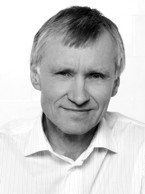Global crisis heals economy
On 26 November, the Riigikogu Toimetised summoned four economic experts around one table to talk about the financial and economic crisis and, on its background, the current state of the Estonian economy.
The participants in the conversation circle were Eesti Pank’s Chairman of the Supervisory Board Jaan Männik, prime ministerial economic advisor Kalev Kukk, University of Tartu International Business professor Urmas Varblane and a Member of the Riigikogu, Taavi Veskimägi (Pro Patria and Res Publica Union). RiTo editor-in-chief Helle Ruusing asked the questions and made a selection from the responses. The participants acknowledged that the world’s banking system had reached a situation where trust and bal-ance had been lost and banks were not keen on loaning money neither to each other, nor to companies and individuals. Estonia’s specific problem is the fact that private consumption and general domestic consumption were very high in the interim period, and thus the econ-omy became overheated. The result: major workforce shortage, major rise in wages and high inflation, as a result of which Estonia, among other things, has not thus far been able to meet the criteria for transitioning to the euro. The participants in the conversation circle were all in favour of rapid transition to the euro, as this would provide a significant stimulus for the Estonian economy. Belonging to the euro zone would give investors more confidence as far as coming to Estonia with their money is concerned. Among other things, the participants in the conversation circle expressed the opinion that the current developments in the European economy should make the European Commission and European Central Bank think very seriously about the proper way to enlarge the euro zone. The current euro model is actually based on the message that one should get rich, and then get the euro. In effect, the message that Estonia has been given with regard to the transition to the euro is equal to the message a number of recognized experts gave Estonia in the early 1990s, when it had regained inde-pendence, saying that Estonia should put its economy in order first, then transition its own currency. But now, with the adoption of the euro postponed into the distant future, experts feel perhaps there is no longer any point in Estonia talking about unilateral adoption of the euro as an administrative decision, but that it will take place spontaneously. People will sim-ply start keeping their savings in euros and conducting their transactions in euros – much as in the early 1990s, when the Soviet rouble was still the official currency in Estonia, and peo-ple started hedging currency risks by amassing various foreign currency.




